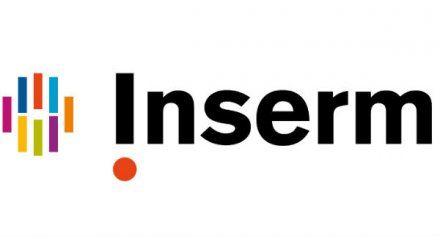预约演示
更新于:2026-02-02
Établissement Français du Sang
更新于:2026-02-02
概览
标签
血液及淋巴系统疾病
心血管疾病
皮肤和肌肉骨骼疾病
单克隆抗体
双特异性抗体
ASO
疾病领域得分
一眼洞穿机构专注的疾病领域
暂无数据
技术平台
公司药物应用最多的技术
暂无数据
靶点
公司最常开发的靶点
暂无数据
| 排名前五的药物类型 | 数量 |
|---|---|
| ASO | 1 |
| 双特异性抗体 | 1 |
| 单克隆抗体 | 1 |
关联
3
项与 Établissement Français du Sang 相关的药物WO2023099578
专利挖掘靶点 |
作用机制- |
非在研适应症- |
最高研发阶段药物发现 |
首次获批国家/地区- |
首次获批日期- |
WO2023209074
专利挖掘作用机制- |
在研适应症 |
非在研适应症- |
最高研发阶段药物发现 |
首次获批国家/地区- |
首次获批日期- |
WO2023036815
专利挖掘靶点 |
作用机制- |
非在研适应症- |
最高研发阶段药物发现 |
首次获批国家/地区- |
首次获批日期- |
39
项与 Établissement Français du Sang 相关的临床试验NCT07078435
Inflammation, Innate Immunity, MIcrobiota and Inovative Treatments in ENDOmetriosis
Endometriosis is a chronic inflammatory, polygenic, and multifactorial disease affecting approximately 10% of women of reproductive age, corresponding to over one million women in France. Endometriosis profoundly impairs the health and quality of life of affected individuals and carries a significant socio-economic burden, making it a major public health concern. To date, the pathogenesis and prognostic factors of disease progression remain poorly understood. Despite current treatment options, which are based on hormonal therapy or surgery, resistance and recurrence are frequent, underscoring the urgent need for innovative therapeutic strategies.
The hypothesis of retrograde menstruation of endometrial cells, among other proposed theories, appears insufficient to fully explain the development of the disease. Immunological factors may be implicated. Endometriosis is characterized by the presence of endometriotic tissue outside the uterine cavity- within the peritoneal cavity or at distant sites-forming lesions that, like eutopic endometrium, contain infiltrating immune cells, with varying compositions across menstrual cycle phases. Although data remain scarce, the literature points to several key mechanisms:
Inflammation and innate immunity with the dendritic cells, that initiate and orchestrate immune responses, appear to be present in different proportions and exhibit altered phenotypes in endometriotic tissue compared to healthy tissue. Macrophages, essential for phagocytosis, tissue repair, and the resolution of inflammation, also show functional and phenotypic modulation. In particular, efferocytosis-their ability to clear apoptotic cells-is impaired, and an imbalance in M1/M2 polarization has been described, potentially facilitating menstrual cell escape. The local microenvironment is characterized by altered cytokine and chemokine profiles. Natural Killer cells exhibit disrupted expression patterns of activating and degranulation capacity.
Microbiota: Many studies suggest a potential role for the intestinal microbiota in the initiation and/or promotion of endometriosis. Patients frequently exhibit gut dysbiosis, marked by reduced microbial diversity.
Resolution of Inflammation: Endometriosis may be associated with defective resolution of inflammation. Resolutive pharmacology involves the use of pro-resolving factors to exert a therapeutic effect by accelerating or stimulating the resolution of inflammation.
The interplay between local inflammation, the gut microbiota, and disease progression remains incompletely elucidated. A comprehensive phenotypic and functional characterization of immune cells-particularly innate immune cells (dendritic cells, macrophages, Natural Killer cells) - in parallel with microbiome profiling and clinical outcome data, may yield novel insights into disease mechanisms and support the development of pro-resolutive therapeutic strategies that may be of interest in endometriosis.
Study Design This will be a monocentric (at Grenoble University Hospital), open-label, prospective experimental study with a control arm.
The primary objective is to identify immune biomarkers associated with endometriosis.
Secondary objectives include:
1. Identification of immune biomarkers associated with clinical outcomes in endometriosis.
2. Characterization of the immunogenetic KIR/HLA (Killer Immunoglobulin-like Receptors / Human Leukocyte Antigen) system in both study groups.
3. Analysis of stromal cells, apoptosis, macrophage efferocytosis, and their responsiveness to pro-resolutive factors in both groups.
4. Identification of a characteristic bacterial gut microbiota profile at diagnosis in women with endometriosis versus controls, and/or profiles associated with one-year clinical outcomes (favorable vs unfavorable), as well as temporal microbiota trajectories over one year in relation to clinical response.
Study Population:
The study will include women undergoing surgery for endometriosis versus control women undergoing benign gynecological surgery with no known history or intraoperative evidence of endometriosis, aged 18 to 42.
Study Procedures:
Women in the endometriosis group will undergo collection of endometriotic lesions, adjacent tissue, eutopic endometrium, and peritoneal lavage during surgery. Controls will provide biopsies of eutopic endometrium, unaffected peritoneum, and peritoneal lavage. For both groups, peripheral blood samples will be collected during routine care and stool samples obtained at baseline (Day 0). For the endometriosis group, a second stool sample will be collected at 12 months (M12).
A clinical evaluation will be performed at inclusion for all participants and repeated at one year for the endometriosis group. Participation for control group subjects is limited to the day of surgery, whereas endometriosis group subjects will be followed for 12 months.
The hypothesis of retrograde menstruation of endometrial cells, among other proposed theories, appears insufficient to fully explain the development of the disease. Immunological factors may be implicated. Endometriosis is characterized by the presence of endometriotic tissue outside the uterine cavity- within the peritoneal cavity or at distant sites-forming lesions that, like eutopic endometrium, contain infiltrating immune cells, with varying compositions across menstrual cycle phases. Although data remain scarce, the literature points to several key mechanisms:
Inflammation and innate immunity with the dendritic cells, that initiate and orchestrate immune responses, appear to be present in different proportions and exhibit altered phenotypes in endometriotic tissue compared to healthy tissue. Macrophages, essential for phagocytosis, tissue repair, and the resolution of inflammation, also show functional and phenotypic modulation. In particular, efferocytosis-their ability to clear apoptotic cells-is impaired, and an imbalance in M1/M2 polarization has been described, potentially facilitating menstrual cell escape. The local microenvironment is characterized by altered cytokine and chemokine profiles. Natural Killer cells exhibit disrupted expression patterns of activating and degranulation capacity.
Microbiota: Many studies suggest a potential role for the intestinal microbiota in the initiation and/or promotion of endometriosis. Patients frequently exhibit gut dysbiosis, marked by reduced microbial diversity.
Resolution of Inflammation: Endometriosis may be associated with defective resolution of inflammation. Resolutive pharmacology involves the use of pro-resolving factors to exert a therapeutic effect by accelerating or stimulating the resolution of inflammation.
The interplay between local inflammation, the gut microbiota, and disease progression remains incompletely elucidated. A comprehensive phenotypic and functional characterization of immune cells-particularly innate immune cells (dendritic cells, macrophages, Natural Killer cells) - in parallel with microbiome profiling and clinical outcome data, may yield novel insights into disease mechanisms and support the development of pro-resolutive therapeutic strategies that may be of interest in endometriosis.
Study Design This will be a monocentric (at Grenoble University Hospital), open-label, prospective experimental study with a control arm.
The primary objective is to identify immune biomarkers associated with endometriosis.
Secondary objectives include:
1. Identification of immune biomarkers associated with clinical outcomes in endometriosis.
2. Characterization of the immunogenetic KIR/HLA (Killer Immunoglobulin-like Receptors / Human Leukocyte Antigen) system in both study groups.
3. Analysis of stromal cells, apoptosis, macrophage efferocytosis, and their responsiveness to pro-resolutive factors in both groups.
4. Identification of a characteristic bacterial gut microbiota profile at diagnosis in women with endometriosis versus controls, and/or profiles associated with one-year clinical outcomes (favorable vs unfavorable), as well as temporal microbiota trajectories over one year in relation to clinical response.
Study Population:
The study will include women undergoing surgery for endometriosis versus control women undergoing benign gynecological surgery with no known history or intraoperative evidence of endometriosis, aged 18 to 42.
Study Procedures:
Women in the endometriosis group will undergo collection of endometriotic lesions, adjacent tissue, eutopic endometrium, and peritoneal lavage during surgery. Controls will provide biopsies of eutopic endometrium, unaffected peritoneum, and peritoneal lavage. For both groups, peripheral blood samples will be collected during routine care and stool samples obtained at baseline (Day 0). For the endometriosis group, a second stool sample will be collected at 12 months (M12).
A clinical evaluation will be performed at inclusion for all participants and repeated at one year for the endometriosis group. Participation for control group subjects is limited to the day of surgery, whereas endometriosis group subjects will be followed for 12 months.
开始日期2025-09-09 |
申办/合作机构 |
NCT06809010
grouP O wholE blooD (LTO-WB): storagE leSion impacT And infLammation
"Etablissement Français du Sang" (EFS) prepares labile blood products from blood donations that are separated by type (red blood cells, plasma and platelets).
The "Centre de Transfusion Sanguine des Armées" (CTSA) produces an innovative labile blood product, LTO-WB, corresponding to group O leukocyte-free whole blood.
The objective of the PEDESTAL EFS study is to compare the inflammatory and biological characteristics of blood products prepared by the EFS vs. the labile blood product prepared by the CTSA.
The "Centre de Transfusion Sanguine des Armées" (CTSA) produces an innovative labile blood product, LTO-WB, corresponding to group O leukocyte-free whole blood.
The objective of the PEDESTAL EFS study is to compare the inflammatory and biological characteristics of blood products prepared by the EFS vs. the labile blood product prepared by the CTSA.
开始日期2025-03-12 |
NCT06592703
Allogenic Adipose Tissue-derived Mesenchymal Stromal Cells for the Treatment of Primary Progressive Multiple Sclerosis: an Open-label Phase I Clinical Trial.
In this study, we propose, for the first time, to test the safety and the potential efficacy of repeated allogenic Adipose tissue-derived Mesenchymal Stromal Cells IT injections in Primary Progressive Multiple Sclerosis patients.
开始日期2025-03-06 |
申办/合作机构 |
100 项与 Établissement Français du Sang 相关的临床结果
登录后查看更多信息
0 项与 Établissement Français du Sang 相关的专利(医药)
登录后查看更多信息
28
项与 Établissement Français du Sang 相关的文献(医药)2024-09-01·Blood transfusion = Trasfusione del sangue
Assessing the risk of transfusion-transmitted variant Creutzfeldt-Jakob disease: a European perspective.
Review
作者: Chantillon, Andrée-Marie ; Domanović, Dragoslav ; Lewin, Antoine ; O'Leary, Peter ; Zaaijer, Hans ; O'Flaherty, Niamh ; Nordberg, Jonas ; Mathy, Genevieve ; Janner-Jametti, Tiziana ; Erikstrup, Christian ; Lieshout-Krikke, Ryanne ; Sousa, Ana Paula ; Tiberghien, Pierre ; Bougard, Daisy ; Prati, Daniele ; Sørensen, Øfsteng H ; Janssen, Mart ; El Dusouqui, Soraya Amar ; Roberts, Barnaby ; Thomas, Stephen ; Gubbe, Knut ; Lehtisalo, Riikka
Several countries have recently reassessed the international risk of variant Creutzfeldt-Jakob disease (vCJD) transmission through transfusion of blood and blood components (red blood cells, platelets and plasma) and relaxed donor deferrals based on geographic and transfusion exposure in countries formerly considered to be high risk, such as the UK. In this regard, the European Blood Alliance organised a consensus meeting of experts and involved professionals to discuss current knowledge, epidemiological data, prevention and various methods for assessing the risk of transfusion-transmitted vCJD, as well as to develop an appropriate position on possible approaches to address these challenges in Europe. Participants reached a consensus that the current risk of transfusion-transmitted vCJD associated with blood donors who either travelled to or received transfusions in the UK during the vCJD outbreak is minimal. In addressing such risks, it would be pragmatic that assessments and guidelines are developed by European expert bodies, rather than individual assessments by Member States. Regardless of the approach used, European or national, a qualitative risk assessment based on a review and analysis of available data, considering all the uncertainties and experiences of other countries, would provide crucial information to reassess blood donation strategies regarding the transfusion-associated vCJD risk.
2024-09-01·Heliyon
Timing is essential: Humoral and cellular responses to SARS-CoV-2 vaccination in a cohort of patients with auto-immune diseases treated with rituximab
Article
作者: Spehner, Laurie ; Meaux-Ruault, Nadine ; Lodovichetti, Juliette ; Tiberghien, Pierre ; Sérézal, Irène Gallais ; Bourezane, Inès ; Aubin, François ; Gallais Sérézal, Irène ; Kroemer, Marie ; Prati, Clément ; Pastissier, Andréa
Rituximab (RTX), an anti CD20 monoclonal antibody, is now a gold standard treatment for several auto-immune and chronic inflammatory diseases. Receiving RTX exposes patients to more severe infections as vaccinations become virtually inefficient in terms of B cell responses. During the COVID-19 crisis, RTX-exposed patients exhibited more severe forms of the disease, and in some cases, the introduction of RTX was delayed or avoided to protect patients as much as possible against SARS-CoV-2 infections. We retrospectively collected cellular and humoral responses from thirteen patients with dermatological and rheumatological autoimmune diseases who had been vaccinated after receiving RTX. Memory T cells subsets from patients that exposed to RTX showed few differences when compared to a cohort of healthy donors. The IFNᵧ ELISpot assay using SARS-CoV-Prot_S1 showed that eight patients exhibited a positive response that was neither correlated to the time between RTX infusion and the sampling nor to the time between RTX and the vaccination. Conversely, analysis of the SARS-CoV-2 serology showed a clearly lower binding antibody units per mL in case of recent RTX infusion. The safe threshold forconsistently positive serology was to vaccinate at least 300 days after RTX infusion (p = 0.02). Our data illustrate the difficulty in obtaining a satisfactory response to vaccination after RTX treatment within almost a year after the latest infusion, and emphasize the need to better evaluate the risk of relapses in auto-immune diseases before administering RTX in order to maintain RTX only in patients whose medical situation requires it.
2024-06-13·Blood
An oral carbon monoxide–releasing molecule protects against acute hyperhemolysis in sickle cell disease
Article
作者: Bencheikh, Laura ; Kiger, Laurent ; Foresti, Roberta ; Kitagishi, Hiroaki ; Pirenne, France ; Hocini, Hakim ; Bartolucci, Pablo ; Matte, Alessandro ; de Franceschi, Lucia ; Nguyen, Kim Anh ; Lefebvre, Cécile ; Federti, Enrica ; Pelinski, Yanis ; Motterlini, Roberto
Abstract:
Acute hyperhemolysis is a severe life-threatening complication in patients with sickle cell disease (SCD) that may occur during delayed hemolytic transfusion reaction (DHTR), or vaso-occlusive crises associated with multiorgan failure. Here, we developed in vitro and in vivo animal models to mimic endothelial damage during the early phase of hyperhemolysis in SCD. We then used the carbon monoxide (CO)–releasing molecule CORM-401 and examined its effects against endothelial activation, damage, and inflammation inflicted by hemolysates containing red blood cell membrane–derived particles. The in vitro results revealed that CORM-401: (1) prevented the upregulation of relevant proinflammatory and proadhesion markers controlled by the NF-κB enhancer of activated B cells, and (2) abolished the expression of the nuclear factor erythroid-2-related factor 2 (Nrf2) that regulates the inducible antioxidant cell machinery. We also show in SCD mice that CORM-401 protects against hemolysate-induced acute damage of target organs such as the lung, liver, and kidney through modulation of NF-κB proinflammatory and Nrf2 antioxidant pathways. Our data demonstrate the efficacy of CORM-401 as a novel therapeutic agent to counteract hemolysate-induced organ damage during hyperhemolysis in SCD. This approach might be considered as possible preventive treatment in high-risk situations such as patients with SCD with history of DHTR.
100 项与 Établissement Français du Sang 相关的药物交易
登录后查看更多信息
100 项与 Établissement Français du Sang 相关的转化医学
登录后查看更多信息
组织架构
使用我们的机构树数据加速您的研究。
登录
或

管线布局
2026年02月08日管线快照
管线布局中药物为当前组织机构及其子机构作为药物机构进行统计,早期临床1期并入临床1期,临床1/2期并入临床2期,临床2/3期并入临床3期
药物发现
3
1
其他
登录后查看更多信息
当前项目
| 药物(靶点) | 适应症 | 全球最高研发状态 |
|---|---|---|
WO2023099578 ( FasL )专利挖掘 | 神经系统疾病 更多 | 药物发现 |
WO2023036815 ( MPIG6B )专利挖掘 | 血液疾病 更多 | 药物发现 |
WO2023209074 ( COASY x SF3B1 )专利挖掘 | 血液及淋巴系统疾病 更多 | 药物发现 |
Limbal epithelial stem cells(Établissement Français du Sang) | 角膜损伤 更多 | 无进展 |
登录后查看更多信息
药物交易
使用我们的药物交易数据加速您的研究。
登录
或

转化医学
使用我们的转化医学数据加速您的研究。
登录
或

营收
使用 Synapse 探索超过 36 万个组织的财务状况。
登录
或

科研基金(NIH)
访问超过 200 万项资助和基金信息,以提升您的研究之旅。
登录
或

投资
深入了解从初创企业到成熟企业的最新公司投资动态。
登录
或

融资
发掘融资趋势以验证和推进您的投资机会。
登录
或

生物医药百科问答
全新生物医药AI Agent 覆盖科研全链路,让突破性发现快人一步
立即开始免费试用!
智慧芽新药情报库是智慧芽专为生命科学人士构建的基于AI的创新药情报平台,助您全方位提升您的研发与决策效率。
立即开始数据试用!
智慧芽新药库数据也通过智慧芽数据服务平台,以API或者数据包形式对外开放,助您更加充分利用智慧芽新药情报信息。
生物序列数据库
生物药研发创新
免费使用
化学结构数据库
小分子化药研发创新
免费使用




